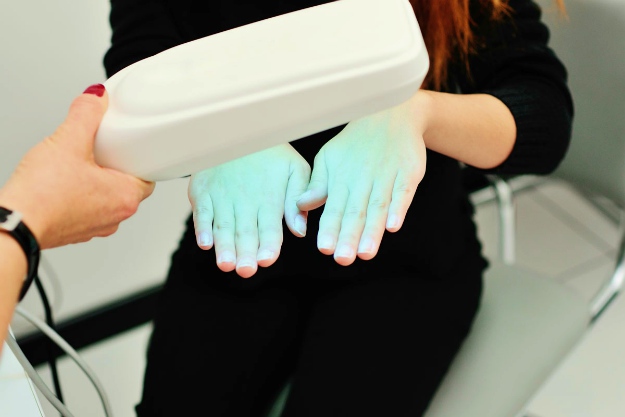

Researchers are uncertain about what causes eczema. Asking the right questions about your lifestyle and family history are a good place to start. Follow along with the questions below to learn how you can manage eczema better.
What Causes Eczema and Other Frequently Asked Questions About This Common Skin Condition
What Causes Eczema?
Experts have yet to determine what causes eczema. But they believe eczema develops because of environmental and genetic factors. Children will more likely develop eczema if a parent has had it. These environmental factors may bring out symptoms of eczema:
- Irritants: detergents, soaps, shampoos, and disinfectants
- Allergens: pollen, mold, dust mites, and dandruff
- Hot and cold temperatures
- Stress
- Hormones: pregnancy, menstrual period
What Does Eczema Look Like?
The appearance of eczema varies from mild, moderate, and severe forms. Mild eczema is when the skin looks dry and flaky. Severe forms of eczema can make skin extremely irritated and red. In severe cases, the skin may crack and ooze.
Which Bacteria Causes Eczema?
The staphylococcal bacteria known as Staphylococcus aureus lives on the skin’s surface. This bacteria is one of the possible causes of eczema. S. aureus is the most common cause of skin infections in people. This bacteria produces a biofilm that blocks sweat ducts. The molecules in the immune system react, which leads to skin itching and irritation.
What Are Eczema Symptoms?
Eczema symptoms differ with each individual. It doesn’t look the same for everyone nor does it always appear in the same locations. You may have all or only some of the symptoms. Here are the eczema symptoms to watch out for:
- Severe itching
- Dry and sensitive skin
- Rough, leathery or scaly patches of skin
- Inflamed skin that appears bright to dark red
- Dark colored patches of skin
- Skin swelling
- Crusting or oozing in scratched areas
Can Stress Cause Eczema?
The National Eczema Association reveals the connection of mental health to eczema. Their survey reveals more than 30% of people with eczema also have depression and/or anxiety. Depression or anxiety may make one more susceptible to eczema because of tension. When you’re tense, the body protects skin by boosting inflammation.
How Does Eczema Spread Throughout the Body?
Eczema can spread to various parts of the body. For both adults and infants, it can spread to the face, cheeks, and chin. It also spreads to the neck, wrist, knees, and elbows. Scratching skin makes eczema worse. Touching inflamed areas will also make them more irritated.
Is There a Cure for Eczema?

There is no cure for eczema but you can treat and manage it. Eczema treatment depends on age and the severity of the case. Treatments include over-the-counter (OTC) medicines, prescription topical medications, phototherapy, and immunosuppressants. Many people with eczema also rely on natural and alternative treatments.
How Can I Manage My Eczema?
For most types of eczema, managing skin flaring depends on the basics:
- Know what triggers your eczema so that you can avoid exposing yourself to these elements.
- Follow a daily bath and moisturizing routine to cleanse and protect skin.
- Use prescribed medication or natural treatments.
Which Foods Can Cause Eczema?
The food we eat may not have a direct cause for eczema. But, it can increase or worsen symptoms. Watch out for food high in sugar as these can cause eczema to flare up. Sugar causes insulin levels to rise, which results in inflammation. It’s important to note which food allergies you have. Allergic reactions will lead to flare-ups. Foods that cause eczema outbreaks include the following:
- Eggs
- Dairy products
- Soy products
- Nuts and seeds
- Wheat
- Shellfish
- Gluten
Are There Foods That I Should Eat to Manage My Eczema?
Anti-inflammatory foods can help lessen or reduce eczema symptoms. Try to take more of the following foods if you have eczema:
- Fatty fish: Fish oil has high levels of omega-3 fatty acids, which are anti-inflammatory.
- Foods containing quercetin: Fruits and vegetables contain quercetin, which gives them their color. As a powerful antioxidant and antihistamine, quercetin can reduce inflammation.
- Foods containing probiotics: Probiotic foods support a strong immune system. They can help reduce eczema flare-ups.
Who Is at Risk for Eczema?
Eczema is a common skin condition that can affect any person, at any age. It can appear as early as infancy. It may also start during the teenage years or later on in adulthood.
What Are the Risk Factors for Eczema?
There are several factors that increase a person’s risk of developing eczema. These include the following:
- Family history: If one parent has eczema, this increases the risk of the child having eczema as well. The chances of developing eczema are higher if both parents have it.
- Geography: People living in urban areas increase their risk of developing eczema. This may be due to exposure to more allergens and skin irritants. Cold climates with low ambient humidity also increase the risk of developing eczema.
Is Eczema Contagious?
Eczema is not contagious and you can’t get infected by someone else. The exact cause of eczema is still unknown. Researchers know eczema develops because of a combination of genes and environmental triggers.
What Causes Eczema in Adults?
Atopic dermatitis, the most common form of eczema, is a hereditary skin condition. But, adults may develop eczema later on in life. This is due to constant exposure to skin irritants and allergens. Eczema also has links to other health conditions. Some of these ailments include high blood pressure, diabetes, anxiety, and depression.
Are There Factors That Lessen the Risk of Developing Eczema?
Research reveals that normal exposure to germs, allergens, and pathogens is important. This helps build a child’s immune system. This lessens episodes of inflammation. Other factors which can protect against the development of eczema include the following:
- Daily application of emollients, a type of moisturizer, early in life
- Exposure to farm animals, both during pregnancy and after birth
- Exposure to household pets
What Causes Eczema in Infants and Toddlers?

In most cases, eczema shows up in childhood. Symptoms appear on the cheeks, chin, elbows, or knees. Over time, these symptoms lessen especially if treatment is constant and effective. Eczema flares up in infants and toddlers because one or both parents have this condition.
When Does Eczema Go Away?
Most young children with eczema get better by the time they attend school. Some people may outgrow their symptoms during adulthood. Others may have eczema for the rest of their lives. There is no specific method to determine when your eczema will go away completely. But it’s possible for symptoms to lessen as you grow older.
What Will Cause Eczema to Flare Up?
Eczema can develop from mild itchiness to severe symptoms due to a variety of irritants. The duration of exposure to these triggers are also factors in eczema flare-ups. Some common eczema irritants include:
- Metals, especially nickel
- Soaps and household cleaners
- Cigarette smoke
- Fabrics like wool and polyester
- Antibacterial ointments such as neomycin and bacitracin
- Formaldehyde found in household disinfectants
- Some vaccines
- Glues and adhesives
Which Ingredient in Skin Products Can Cause Eczema Flare-ups?
When you have eczema, it’s crucial to use products which are gentle enough for sensitive skin. Check product labels and be wary of the following ingredients:
- Glycolic acid, salicylic acid, and retinol: These ingredients dry out or irritate skin.
- Preservatives: Preservatives prevent bacteria from growing in cosmetics and skin care products. These preservatives can also cause skin inflammation.
- Fragrances: Ingredients that give fragrances to skin products can trigger eczema flare-ups.
- Isothiazolinones: This is an antibacterial agent found in baby wipes. They can trigger eczema.
- Cocamidopropyl betaine: This ingredient thickens shampoos and lotions. It can sometimes irritate skin.
- Paraphenylenediamine: Leather dyes and temporary tattoos contain this ingredient. It can also cause eczema flare-ups.
What causes eczema and how to treat it? Check out this video from Osmosis on eczema symptoms, diagnosis, treatment:
https://www.youtube.com/watch?v=L5oRHWsJJJA
Eczema has no known definite causes. But, there are several triggers which can cause it to develop or worsen. Now that you know what causes eczema in adults in infants, it’s best to maintain a healthy skin care routine. You can also manage and treat eczema with a skincare routine for your condition. Eczema is the itch you shouldn’t scratch!
How do you care for your skin to guard against similar skin ailments? Share your tips with us in the comments section below!
Up Next: Treating Rosacea and Dermatitis
